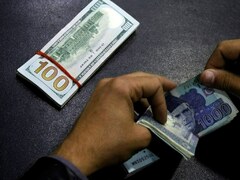The government of Kuwait on Sunday named two women to join its municipal council, in a historic move for the oil-rich Gulf emirate which only last month agreed to grant women full political rights. In the last all-male polls in Kuwait last week, voters elected 10 members of the 16-seat civic body, while the remaining six members are appointed by the ruler of the country on the recommendation of the government.
"During its weekly meeting on Sunday, the cabinet named two women to the municipal council for the first time in the history of Kuwait," Social Affairs Minister Faisal al-Hajji told AFP.
The state-run KUNA news agency quoted Prime Minister Sheikh Sabah al-Ahmad al-Sabah as saying that "two of the six appointed members were women."
Government sources told AFP that the two women are Fatima Nasser al-Sabah, a member of the ruling family and sister of former oil minister Sheikh Saud Nasser al-Sabah and Fawziya al-Bahar, both engineers.
The appointments, which also include four men, are to be confirmed and issued in a decree by Emir Sheikh Jaber al-Ahmad al-Sabah.
The decision marks a small step in a slow process of reform under way in the deeply conservative oil-rich Gulf Arab monarchies.
The local media had reported after the June 2 vote that the government intended to appoint up to three women to the council, whose powers are restricted to civic planning, monitoring some public services and restaurants, roads and civil construction.
Women will make their election debut in the 2007 legislative elections and will vote and contest in the next municipal polls in 2009, after parliament voted on May 16 to grant them full political rights.
Tribal candidates bagged six of the 10 elected seats in Thursday's vote, while two were claimed by members backed by Sunni and Shiite Islamists and two won by liberal-leaning businessmen.
Kuwait became the first Gulf Arab state to have a constitution and parliamentary democracy in 1962, but women were barred from participating in political life although they have taken part in trade and student union elections.
Liberal-leaning Prime Minister Sheikh Sabah al-Ahmad al-Sabah has repeatedly said following the May 16 vote in parliament that he plans to name a woman minister in his 16-member cabinet.
Five women - a journalist, a writer, two women's rights activists and an academic - have already said they plan to contest the parliamentary elections, with an estimated 200,000 women expected to register as eligible voters next February. Kuwait joins Bahrain, Oman and Qatar as the only Gulf Arab states to give women the right to vote and stand for public office. The United Arab Emirates also has a woman minister.
But with the possible exception of Kuwait and Bahrain, this has had a limited effect, given that elections in these states are for consultative councils or other bodies without real teeth.
BR100
15,103
Increased By
140.9 (0.94%)
BR30
42,619
Increased By
540.8 (1.29%)
KSE100
148,196
Increased By
1704.8 (1.16%)
KSE30
45,271
Increased By
438.2 (0.98%)






















Comments
Comments are closed.